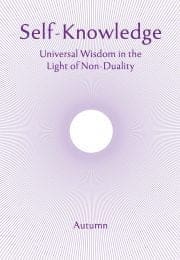The Will to Know
The will to know is more deep-rooted than the will to live or the will to believe. An infant picks up the watch of its father and listens to its ticking. The child is not satisfied with the apparent knowledge, but wants to know the origin of the tick. He pulls the watch to pieces, that is to say, he analyses it.
Knowledge is power, they say. It is by knowledge of the laws of nature that nature is controlled; but our chief prerogative is to know the general truth which is the basis of all minor truths. A vast machine has thousands of wheels within wheels, but the origin of the power is the electric principle on which the machine is based.
Superficial knowledge does not satisfy the human spirit. We cease to know only when we are dead. The fundamental knowledge, by which the whole fabric of knowledge is understood, is called Truth. It is the principle which is unchangeable and the basis of all changes. If change is attributed to truth, then how can we differentiate truth from not-truth?
One great feature of truth is its unchangeability. Youth, wealth, common love, power, pleasure all change with time. The element which causes change is called Time. Truth, to be Truth, must be above Time. Some people say that love does not change. It is ignorance which changes, and everything except Truth is ignorance. Love changes as much as waves in the sea. But we can love Truth and in that case, love and Truth become one.
There are two categories in the world of mutations, the subject and the object, i.e. matter and mind. The mind appreciates change, but is itself subject to change. The evolution of the mind of a child is a study in the changing aspects of the mind. When Frederick Nietzsche had lost his memory and the normal working of his mind, he one day heard people speaking about books and he remarked: ‘Books? Have I not written some books?’ How pathetic is the change in a great mind.
Is there an element which does not change ? We have to look for it in the region beyond the mind. In European philosophy, mind is the starting point of all knowledge and there is nothing beyond it. Is not the Self above the mind? Who notes the changes in the mind? What is the faculty by which we appreciate duration? In the non-dual philosophy it is called Atman or Self.
We scan the heavens through a telescope but the faculty which cognises the luminous entities in the firmament is far superior to the objects of cognition. Ultimately our quest for Truth will be satisfied only when we know what the Self is.
Self (Atman) is that which is self-illumined. To quench the thirst to know, let us know Truth, that is, the nature of our Self. The instrument of the cognition of Atman is higher love, called Self-realisation. Self as Truth is not known by scientific enquiry or psychological analysis. Its objective knowledge is impossible and absurd. Throw down the burden from your head, of all that is contained in time and space. Stand alone with the Alone, in the Alone, and in the intuitive flashes which follow will be revealed the nature of Atman.
There is no permanent satisfaction without cognition of the nature of the Self. Can it be imparted? Perhaps. It is only in the great Silence of the absence of all that is and all that is not, that the Self is cognised as one’s own Self. When Swami Rama Tirtha saw the writer approaching him, on the solitary peak of Vasishtha Mountain, after a journey of extreme hardship and with no other motive than love of the saint, he stepped forward and embraced his visitor with the words: ‘My son, my son.’ Then a flash of new consciousness arose which cannot be described.
Though unknown, Truth is knowable. It is the Self, the mother of both being and non-being. It is neither inert nor dark, nor is there any woe in it. If one persists in asking: ‘What is it?’, ‘What is it?’, and sacrifices all joys, all hopes, then we will understand the words spoken by the Teacher: ‘Tat Tvam Asi, Tat Tvam Asi’, (That Thou Art). The intuitive response will be: ‘Aham Brahman Asmi, Shivo Hum’ (I am the Absolute, I am the supreme Good.’)
The Upanishad says: ‘Brahman is above, below, to the right, to the left.’ Exclude nothing, include nothing. Stand naked, embracing the whole universe in thyself, and know: That Thou Art. This is supreme wisdom.
Hari Prasad Shastri


